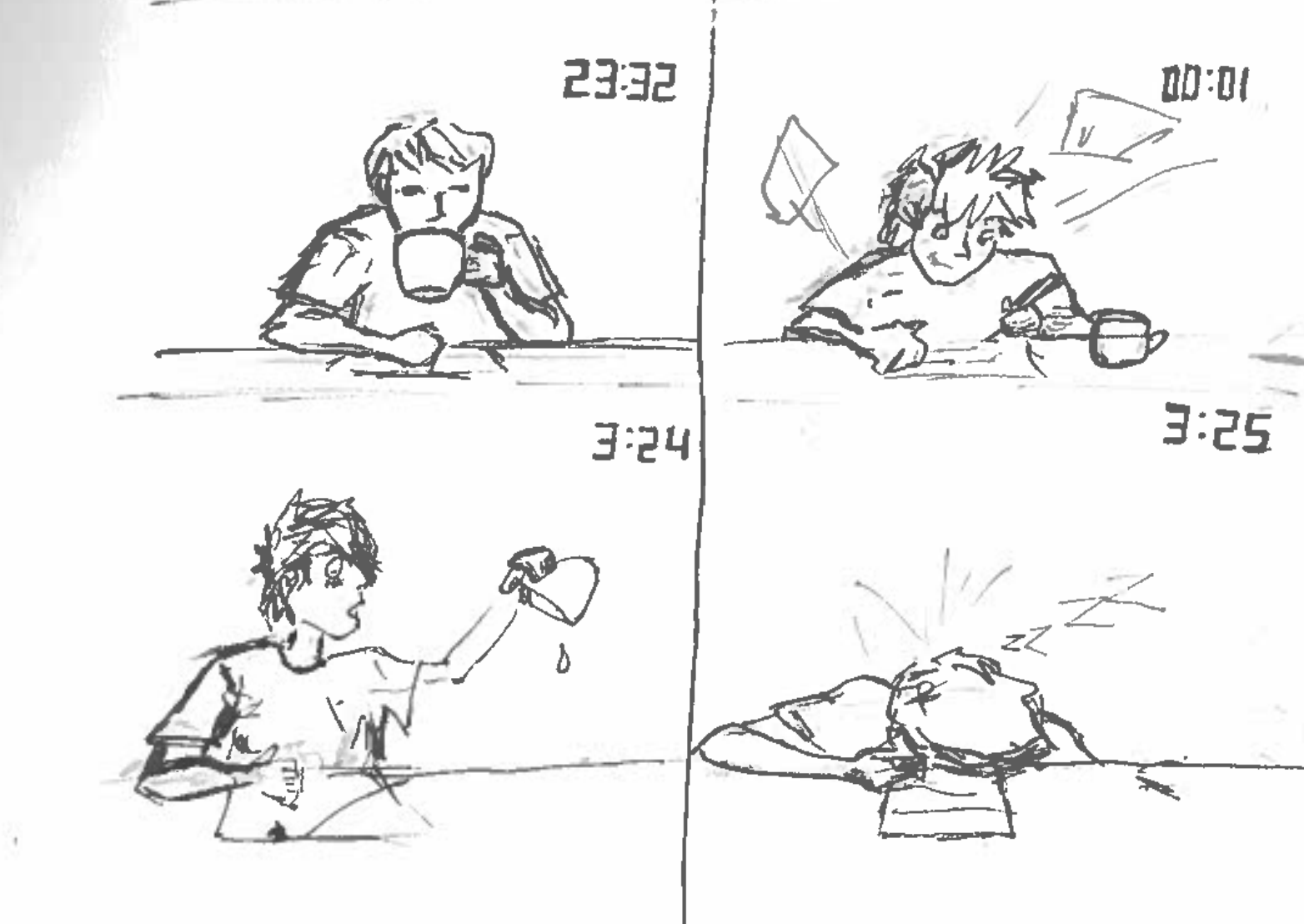“Caffeine clogs the adenosine receptors in the brain so they don’t feel the hormone building up. You’re still tired, but your brain doesn’t know it.”
Most of us kick off our day with one or two cups of coffee to get us going, but how many of us really know the science behind how it works? When we wake up, a tiny molecule called adenosine starts to build up in the brain. The longer we stay awake, the more of this molecule accumulates, and the higher its concentration, the more tired we feel. It works just like a neural hourglass, keeping track of our waking hours, letting us know when we’ve had enough. Caffeine is classified as an adenosine receptor antagonist – it clogs the adenosine receptors in the brain so they don’t feel the hormone building up. You’re still tired, but your brain doesn’t know it.
Those who are familiar with this drug in their daily lives may have experienced what is known as a “caffeine crash”. This is when the caffeine leaves your system and you feel even more tired and groggy than you were in the first place. The simple explanation for this unpleasant phenomenon is that once the molecular dam built by caffeine molecules degrades, there’s no longer anything stopping the accumulated adenosine from assaulting all your receptors. While your brain was blinded by caffeine, the adenosine kept building up all the same. The solution most of the time is another cup of coffee, which numbs the tiredness receptors back into submission for a few more hours, while your brain is still deprived of much-needed rest and recovery. The result of continually refusing your mind this basic physiological need may lead to chronic sleep deprivation, which affects the cognitive function irreversibly. Memory impairment, cardiovascular problems, and the onset of psychiatric disorders are just a few of the alarming effects of sleep deprivation in the long term.
Meanwhile, alcohol seems to have the opposite effect on the body at first sight, which is that it works as a sleep aid. It’s a known fact that a nightcap helps you fall asleep faster, but how good is the quality of the sleep you get? Not that great, it appears. One of the more noxious effects of alcohol is that it blocks REM, or dream-sleep, which is essential in emotional regulation and promotion of creativity. It also helps updates to your functional models of the world and constructs new associations between concepts. All of this suggests that REM sleep is crucial in the learning process, and not getting enough of it may have unpleasant consequences on your academics. In fact, dream-sleep is so important that being deprived of it for a longer period can lead to your dreams “leaking out” into wakefulness, which is the brain trying to get back the REM sleep it missed by dreaming while wide awake. This mixed state of consciousness can induce hallucinations and an overall estrangement from reality.
“One of the more noxious effects of alcohol is that it blocks REM, or dream-sleep, which is essential in emotional regulation and promotion of creativity.”
While giving up coffee and alcohol for good would be an unpopular choice for most students, there are other options. Turning off bright lights and LED screens for at least one hour before bed will likely improve the quality and quantity of the sleep you get. Or if you really cannot avoid those screens, try using apps such as f.lux which filter out blue light and help stop sleep disruption. Avoiding alcohol before bed, or even drinking as little as possible, and not consuming caffeinated beverages in the second half of the day may also be helpful. Caffeine has a half life of five to seven hours, meaning that even six hours post drinking a cup, half of it is still present in your system.
Studying responsibly and avoiding all-nighters will also improve your sleep quality. All-nighters are not effective in the long term, and after all, physical and mental health is more important than academics. Instead, try having regular wake-up and sleep times. Stick to them as much as possible – your brain is a creature of habit. You can also take naps during the day – the classic power nap lasts between 10 and 20 minutes. They are actually proven to enhance memory function and concentration.
“Sleep should be a necessity, not a luxury.”
Sadly, sleep is vastly underrated in society, especially by students. However, sleep should be a necessity, not a luxury. People who consistently have poor sleep are less motivated, less creative, and struggle at problem solving. More time awake does not mean more productivity. In fact, studies are now displaying a powerful link between quality of sleep and susceptibility to diseases such as cancer, diabetes, Alzheimer’s disease, obesity, and poor mental health. Our goal is to be smart and be healthy by choosing a good night’s sleep.






